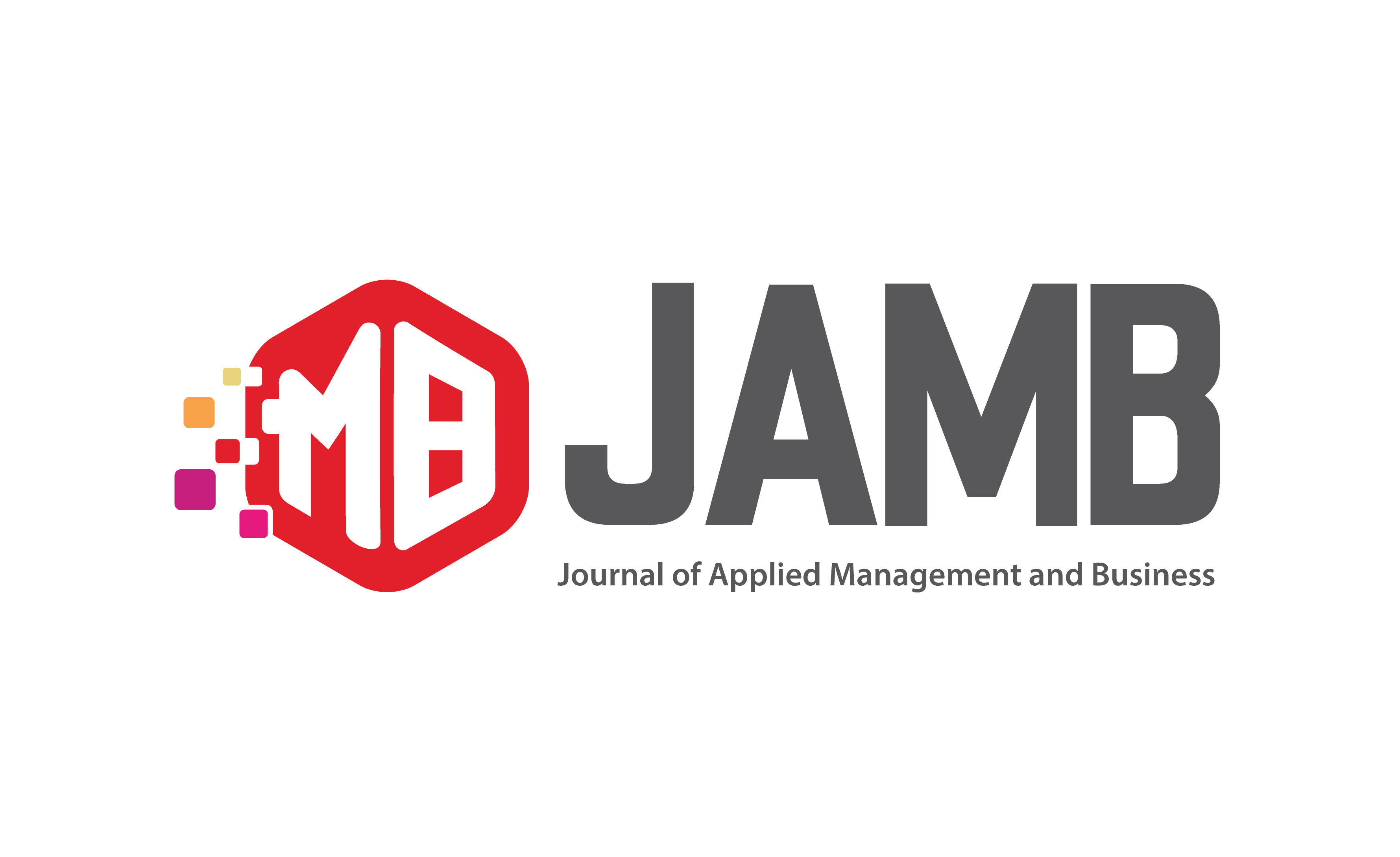Artificial Intelligence and Novel Services: Exploring Opportunities in the Marketing Landscape
DOI:
https://doi.org/10.37802/jamb.v4i1.399Keywords:
Artificial Intelligence, Customer Loyalty, Customer Relationship ManagementAbstract
Customer loyalty and trust are critical factors for businesses aiming to establish long-term relationships with their customers. With the advancement of artificial intelligence (AI) technologies, there is a growing interest in leveraging AI to measure and enhance customer loyalty and trust. This research aims to explore the role of AI in measuring and enhancing customer loyalty and trust by examining the current literature and conducting empirical studies. The research methodology involves a systematic review of relevant studies and the development of a conceptual framework. The research results highlight the significant impact of AI on customer loyalty and trust, demonstrating how AI-powered solutions can effectively collect and analyze customer data to gain insights and personalize customer experiences. The discussion encompasses the implications of AI in measuring and enhancing customer loyalty and trust, including the importance of data privacy and ethics. The study concludes with recommendations for businesses on implementing AI strategies to build and maintain strong customer relationships based on loyalty and trust. Overall, this research contributes to the understanding of how AI can revolutionize customer relationship management and provides valuable insights for practitioners and researchers in the field of marketing and AI.
Downloads
References
D. Y. Riyanto, N. Andrianto, A. K. Riqqoh, and A. Y. A. Fianto, "A Conceptual Framework for Destination Branding in Jawa Timur, Indonesia," Majalah Ekonomi: Telaah Manajemen, Akuntansi dan Bisnis, vol. 24, no. 2, pp. 149-157, 2019.
X. Li, X. Guo, and M. Zhou, "Artificial intelligence and customer loyalty: The mediating role of trust," International Journal of Information Management, vol. 50, pp. 222-232, 2020. doi: 10.1016/j.ijinfomgt.2019.10.006
C. Wang, P. Zhang, and H. Liu, "Enhancing customer loyalty in the era of artificial intelligence: The roles of personalization and trust," Journal of Retailing and Consumer Services, vol. 61, 102565, 2021. doi: 10.1016/j.jretconser.2021.102565
K. Kim, J. W. Kim, and H. Lee, "Antecedents and consequences of customer loyalty in online shopping: A case of online travel agencies," Journal of Travel Research, vol. 57, no. 4, pp. 481-495, 2018. doi: 10.1177/0047287517697036
A. Y. L. Chong, K. B. Ooi, and B. Lin, "Online customer experience, trust and loyalty: A meta-analysis," International Journal of Information Management, vol. 43, pp. 82-94, 2018. doi: 10.1016/j.ijinfomgt.2018.06.002
P. Chatterjee and S. Goel, "Customer loyalty in e-commerce: An exploration of antecedents and moderating effects," Journal of Retailing and Consumer Services, vol. 52, 101921, 2020. doi: 10.1016/j.jretconser.2019.101921
M. H. Huang and R. T. Rust, "Artificial intelligence in service," Journal of Service Research, vol. 21, no. 2, pp. 155-172, 2018. doi: 10.1177/1094670517750544
S. J. Yoon and Y. Kim, "Artificial intelligence in marketing: A review of applications, popular techniques, and research directions," Journal of Retailing and Consumer Services, vol. 61, 102548, 2021. doi: 10.1016/j.jretconser.2021.102548
B. Yoo, N. Donthu, and S. Lee, "An examination of selected marketing mix elements and brand equity," Journal of the Academy of Marketing Science, vol. 28, no. 2, pp. 195-211, 2000. doi: 10.1177/0092070300282002
S. Su, J. Li, and H. Liang, "Enhancing customer loyalty in e-commerce: The role of relational benefits," Journal of the Association for Information Systems, vol. 18, no. 12, pp. 1165-1187, 2017. doi: 10.17705/1jais.00512
M. L. Roberts, L. D. B. Nguyen, M. C. Tra, and L. H. Nguyen, "Artificial intelligence in personalized marketing: A systematic literature review," International Journal of Electronic Commerce, vol. 25, no. 3, pp. 327-364, 2021. doi: 10.1080/10864415.2021.1914232
R. Romaniuk and B. Sharp, "Conceptualizing and testing brand equity: A survey," Marketing Theory, vol. 6, no. 2, pp. 125-145, 2006. doi: 10.1177/1470593106063761
S. D. Wu, J. K. Y. Fung, and Y. K. C. Yau, "The effects of service quality and customer satisfaction on customer loyalty in high-speed rail services in China: A moderating role of price fairness," Transportation Research Part A: Policy and Practice, vol. 118, pp. 406-422, 2018. doi: 10.1016/j.tra.2018.09.012
G. A. Churchill Jr., "A paradigm for developing better measures of marketing constructs," Journal of Marketing Research, vol. 16, no. 1, pp. 64-73, 1979. doi: 10.1177/002224377901600110
L. T. Truong, D. A. Simmons, and A. Palmer, "New products: The role of customer trust in online retailing," Journal of Retailing, vol. 86, no. 3, pp. 379-392, 2010. doi: 10.1016/j.jretai.2010.03.004
S. Y. Park, "An analysis of the technology acceptance model in understanding university students' behavioral intention to use e-learning," Educational Technology & Society, vol. 12, no. 3, pp. 150-162, 2009.
S. Vargo and R. F. Lusch, "Evolving to a new dominant logic for marketing," Journal of Marketing, vol. 68, no. 1, pp. 1-17, 2004. doi: 10.1509/jmkg.68.1.1.24036
A. Y. A. Fianto, D. Hadiwidjojo, S. Aisjah, and Solimun, "Development and measurement of Islamic values in consumer behaviour research," International Journal of Business and Management Invention, vol. 3, no. 9, pp. 1-10, 2014.
C. A. de Ruyter, M. G. Wetzels, and D. Feinberg, "Customer equity considerations in service recovery: A cross-industry perspective," Journal of the Academy of Marketing Science, vol. 31, no. 2, pp. 141-153, 2003. doi: 10.1177/0092070302250902
C. Fornell, "A national customer satisfaction barometer: The Swedish experience," Journal of Marketing, vol. 56, no. 1, pp. 6-21, 1992. doi: 10.1177/002224299205600102











